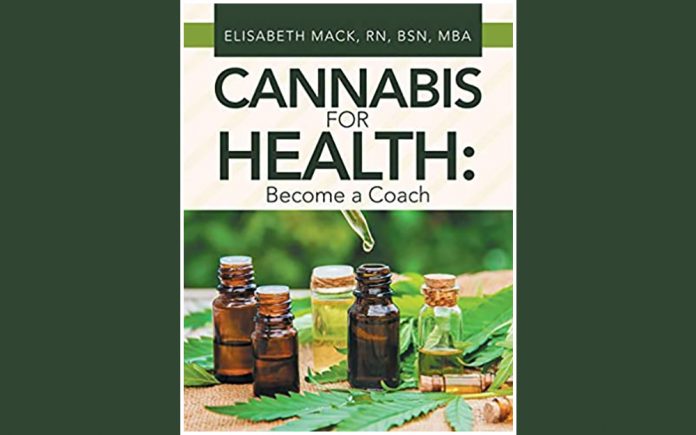
By Elisabeth Mack
If you visit Elisabeth Mack’s website, you will read an outstanding expose about a very accomplished nurse who developed a comprehensive education platform on the science and treatment of pathophysiologic conditions with the miracle plant cannabis. In 2015 Elisabeth, (with an s), started Holistic Caring Inc. and has seen meteoric success every year.
She started providing consultations to clients on how to use medical cannabis. If clients did not have access to premium products, she visited cultivator’s farms and labs to assess their compliance with California laws. She sampled their products for her own medical conditions. As her clientele increased, she began recruiting qualified nurses to help.
The next path was to educate these new nurses. Elisabeth started “Cannabis 101” workshops to advance their scientific knowledge. Her knowledge was becoming so extensive that “Cannabis 101” was too basic. She then offered eight-hour workshops with her CEU provider number from the Board of California Nurses. Nurses are required to obtain thirty CEU hours every two years in order to renew their licenses.
By the time 2018 rolled around Elisabeth, frantic to keep up with the client business and workshop requests, decided to write a book. In April 2020 she launched her book available on her website and Amazon called Cannabis for Health: Become a Coach. She now invites other nurses to carry the torch. There are over 40,000 studies related to cannabis/marijuana on PubMed.gov. The reader can find many books on the science of cannabis. But the one book that will help you practice cannabis medicine is Elisabeth’s book.
If you go to the American Cannabis Nurses Association website, you will see the call for more nurses to coach clients on cannabis use. The National Council of State Boards of Nursing (NCSBN), in July of 2019, published standards of practice for nurses taking care of patients who use cannabis. However, the federal prohibition on cannabis prevents hospitals from including this topic.
Cannabis science is not in physician, nursing, or pharmacy curriculums. Doctors still believe “using marijuana is dangerous, and addictive.” Elisabeth’s book is like a glass of fresh cold water in a dry arid desert. Buying this book helps nurses drink from this glass of common sense while learning to be a coach. Elisabeth starts with the spirituality of the plant leading us on a journey to success in palliating suffering.
Her book is 136 pages packed with diagrams and didactic information with extensive scientific references after each chapter. The chapters begin with an explanation of the endocannabinoid system newly discovered in 1992 by Rafael Mechoulam. It progresses into how the plant mimics our endocannabinoids Anandamide and 2-AG. There is an explanation of the major cannabinoids Delta-9-THC, CBD, CBG, the methods of administration pro and con, how to qualify for a physician recommendation, the extraction methods, testing, and selling medicines.
The most salient parts of the book are when Elisabeth details the basics of dosing, drug interactions, managing side effects, and sensitization. She writes about ratios dosing calculations for adults and children, blending cannabinoids with traditional medicine, how to read labels, and certificates of analysis. She details the cost-benefit analysis and writes the language for insurance companies to reimburse beneficiaries on the cost of cannabis vs the cost for pharmaceuticals.
Another premium section is when she discusses each disease entity: acute chronic conditions, autoimmune diseases, neurological conditions, mental health, pediatrics, and finally geriatrics. This miracle plant, with minimal side effects, can alleviate suffering after tapering off the current failed treatments. Elisabeth’s trademark is her belief in God’s plant must be coupled with an overall holistic approach that includes diet, movement, joy, connection, and spirit.
Elisabeth ends with entrepreneurial tips for nurses attempting the new nursing specialty of coaching clients to use medical cannabis. The medical community has left many patients on opiates, high and dry since the new federal guidelines on the use of opiates for chronic pain. I also can attest to that as I receive many clients whose physician has arbitrarily cut off renewing benzodiazepines or opiates without tapering or replacing them with alternate pharmaceuticals.
The book gets five stars for giving nurses a roadmap for becoming a cannabis coach.
Questions contact info@ruthahillrn.com











































